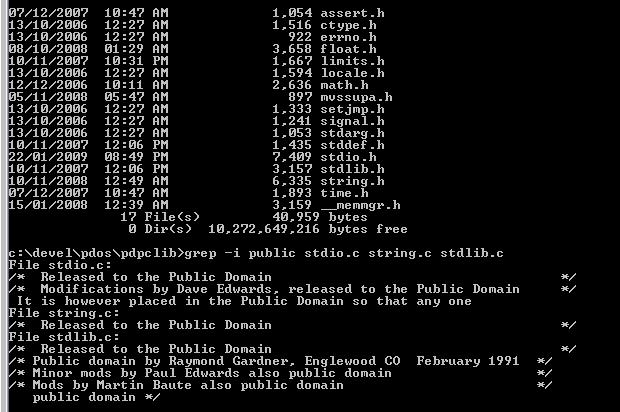There are two major components to the PDOS project.
The most commonly used component, thanks to GCCMVS (port of GCC to IBM mainframe) is PDPCLIB which is a public domain C runtime library which you can link your own C programs against to produce executables with no licencing restrictions (even if you use a compiler, commerical or non-commercial, that does have licencing restrictions). PDPCLIB works on DOS, OS/2, Win32, PDOS, MVS (mainframe) and CMS. The library conforms to the ISO/IEC 9899:1990 (aka ANSI X3.159-1989 aka C90 aka C89) standard. It has no extensions so is particularly good at finding out if your code is truly portable.
Secondly there is an operating system, with a user interface as simple as MSDOS, but behind the scenes the story is quite different. There are 2 completely different APIs supported (MSDOS and MVS). The MSDOS API is supported on both the 16-bit 8086 and 32-bit 80386. On the 80386, it isn't really the MSDOS API, it is a theoretical 32-bit MSDOS API (note that while the API and applications are pure 32-bit, it internally switches to 16-bit in order to be able to use the BIOS, a fact that the application and end user is completely unaware of). The MVS API is supported on the 24-bit S/370 and 31-bit S/390 IBM mainframe hardware. The 31-bit S/380 from Jujitsu is also supported. The 16-bit MSDOS API and the 24/31-bit MVS API are both able to run a subset of real-world applications that were targetted to the original environment that they are in some ways a clone of.
Note that a 3rd API - Posix - is expected to be implemented at some point, starting with the S/3x0 hardware. After which, a port of NetBSD may be possible. It is hoped that programmers from around the world who subscribe to this worldview will make themselves available to push this project forward.
